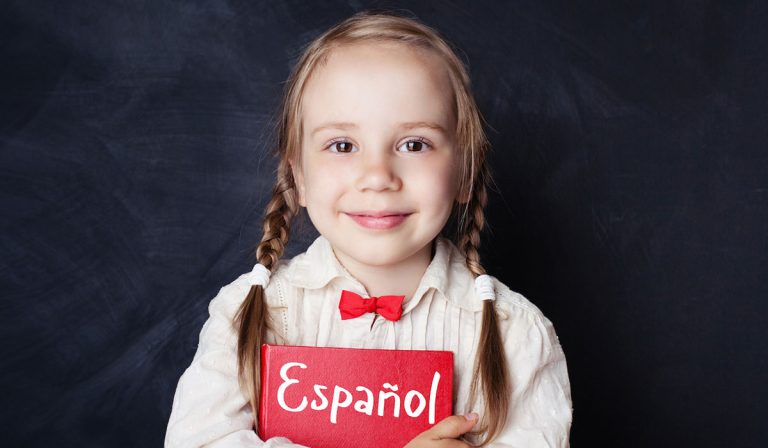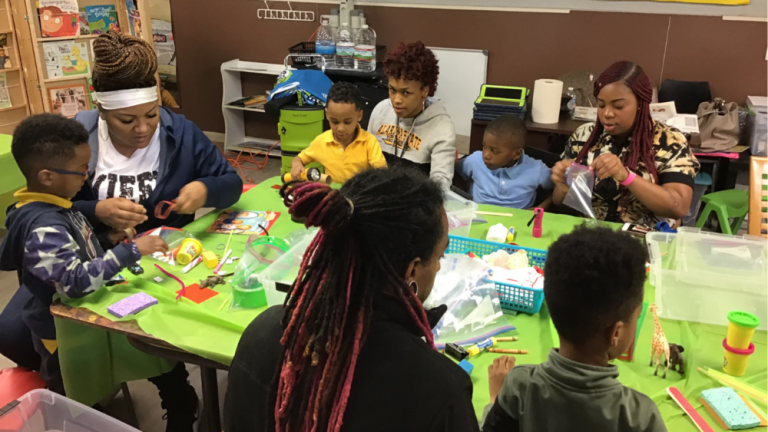What is Early Childhood Education Degree : Unlocking Opportunities for Success

An Early Childhood Education Degree prepares individuals to teach and work with young children. It focuses on child development and effective teaching strategies.
Early Childhood Education Degree equips students with knowledge and skills to foster the cognitive, social, and emotional growth of young learners. This degree program typically covers topics such as child psychology, curriculum development, and classroom management. Graduates can pursue careers as preschool teachers, childcare directors, or early intervention specialists.
With the increasing recognition of the importance of early education, obtaining a degree in this field can lead to fulfilling and impactful career opportunities in the education sector.
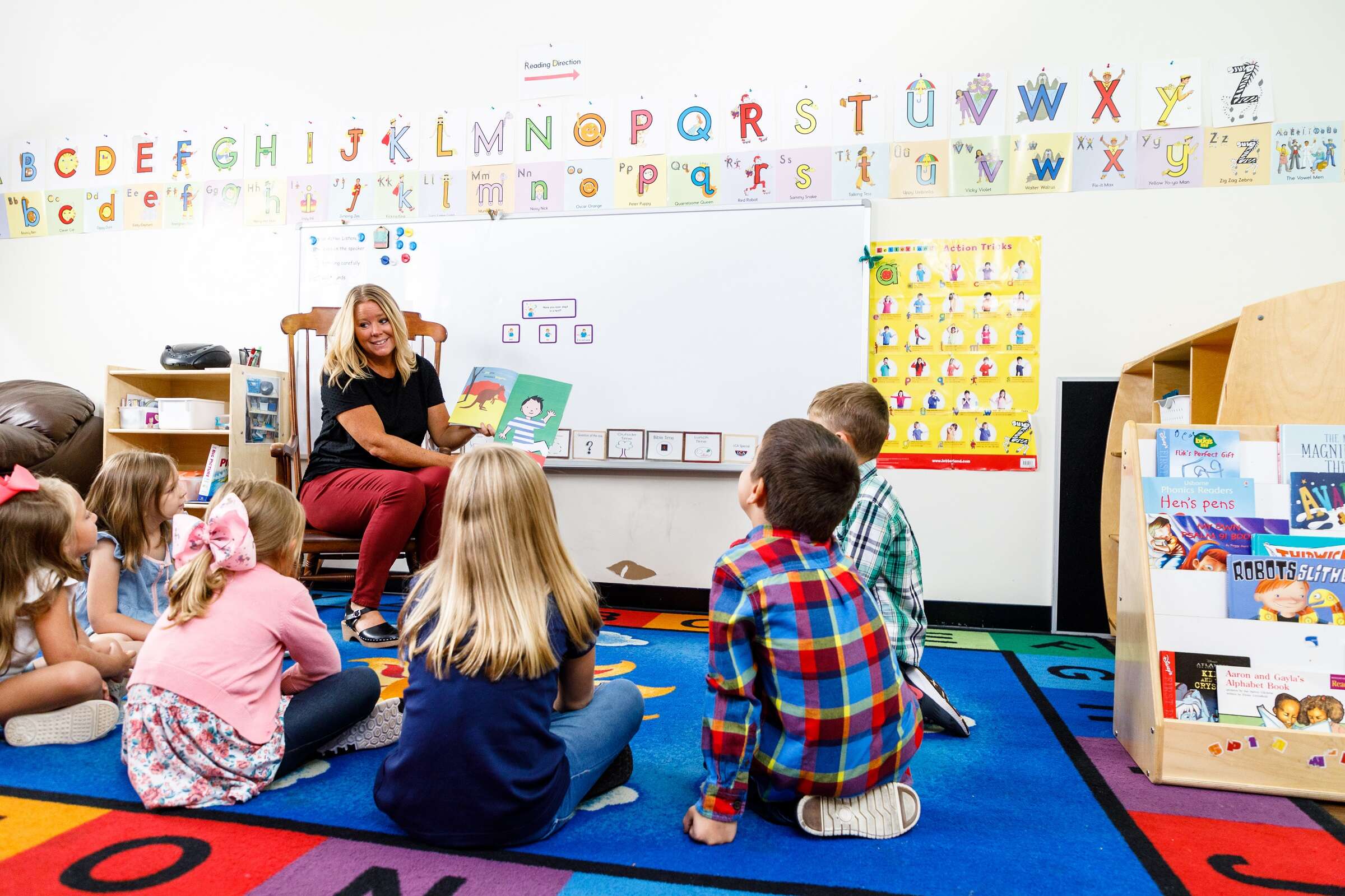
Credit: www.liberty.edu
What Is Early Childhood Education Degree?
Early Childhood Education Degree is a program designed to prepare individuals for a career in educating young children, typically ranging from birth to around eight years old. This degree equips students with the knowledge and skills needed to support the cognitive, social, emotional, and physical development of young children. It focuses on creating a nurturing and educational environment that fosters learning and growth during the crucial early years of a child’s life.
Defining Early Childhood Education
Early Childhood Education (ECE) refers to the academic discipline that focuses on the development and education of young children. It encompasses a wide range of topics, including child development, curriculum planning, teaching methods, and the role of families and communities in early childhood education. ECE professionals play a vital role in laying the foundation for a child’s future success by providing a supportive and stimulating learning environment.
Explaining The Degree
The Early Childhood Education Degree is a specialized program that provides students with the knowledge and skills necessary to work with young children in educational settings. The curriculum typically covers child development theories, early childhood curriculum design, assessment and evaluation methods, and strategies for working with diverse populations. Graduates of this program are prepared to pursue careers as preschool teachers, childcare center directors, early intervention specialists, and family support workers.
Why Pursue Early Childhood Education Degree?
Early childhood education is a critical stage in a child’s development. Pursuing a degree in this field can lead to a rewarding career that positively impacts young children’s lives. Here are some compelling reasons to consider pursuing a degree in early childhood education.
Growing Demand For Early Childhood Educators
The demand for early childhood educators is on the rise, driven by a growing understanding of the importance of early childhood education. Employment opportunities in this field are projected to grow rapidly, creating a need for qualified professionals who can provide quality care and education to young children.
Opportunities For Career Advancement
Obtaining a degree in early childhood education opens up various opportunities for career advancement. Graduates can pursue roles such as lead teacher, program director, or childcare center administrator. These positions offer increased responsibilities and the chance to make a greater impact on the field of early childhood education.
Making A Difference In Children’s Lives
One of the most rewarding aspects of pursuing a degree in early childhood education is the opportunity to make a meaningful difference in children’s lives. By providing a nurturing and stimulating learning environment, early childhood educators can positively influence a child’s cognitive, social, and emotional development, laying the foundation for their future success.
Types Of Early Childhood Education Degrees
Early childhood education degrees are essential for individuals seeking to make a positive impact on young children’s lives. These programs equip students with the necessary knowledge and skills to effectively engage with children in their formative years. There are various types of early childhood education degrees that individuals can pursue to enter this rewarding field.
Associate Degree In Early Childhood Education
An associate degree in early childhood education is a two-year program that provides students with foundational knowledge in child development, learning strategies, and classroom management. This degree is ideal for individuals seeking entry-level positions in preschools, daycare centers, and other early childhood education settings. Graduates are prepared to work as teacher assistants or childcare workers.
Bachelor’s Degree In Early Childhood Education
A bachelor’s degree in early childhood education is a four-year program that delves deeper into child psychology, curriculum development, and educational theories. Students gain practical experience through internships and student teaching opportunities. This degree is suitable for those aspiring to become lead preschool teachers, curriculum coordinators, or childcare center directors.
Master’s Degree In Early Childhood Education
A master’s degree in early childhood education is a graduate-level program designed for educators looking to advance their careers and expertise in the field. This degree focuses on research, leadership, and specialized areas such as special education or early intervention. Graduates often pursue roles as educational consultants, program directors, or college instructors.
Coursework For Early Childhood Education Degrees
Early Childhood Education degrees involve a comprehensive curriculum that equips students with the necessary knowledge and skills to work with young children. The coursework for Early Childhood Education degrees covers various aspects of child development, curriculum planning, assessment, and special education. Let’s delve into the key components of the coursework for Early Childhood Education degrees.
Child Development And Psychology
Understanding child development and psychology is crucial for early childhood educators. This coursework delves into the stages of physical, cognitive, social, and emotional development in young children.
Curriculum Planning And Instruction
Curriculum planning and instruction coursework focuses on designing and implementing effective learning experiences for young children. It covers creating developmentally appropriate activities and lesson plans.
Assessment And Evaluation
Assessment and evaluation coursework teaches students how to effectively evaluate the progress and development of young children. It includes techniques for observing, documenting, and assessing children’s learning.
Special Education And Inclusion
Special education and inclusion coursework provides insight into supporting children with diverse learning needs. It covers strategies for creating inclusive environments and adapting instruction to meet individual needs.
Career Opportunities With Early Childhood Education Degree
An Early Childhood Education degree provides a foundation for working with young children in various educational settings. Graduates can pursue careers as preschool teachers, childcare center directors, or early intervention specialists. The degree equips individuals with the knowledge and skills necessary to support children’s development and learning during their formative years.
Early Childhood Education Degree is a program that prepares students to teach and care for young children from birth to age eight. The degree offers a wide range of career opportunities in the field of education. Graduates with an Early Childhood Education Degree can work as a Preschool Teacher, Kindergarten Teacher, Childcare Center Director, Early Childhood Education Consultant, or Special Education Teacher. Let’s take a closer look at each of these career paths.Preschool Teacher
Preschool Teachers work with children between the ages of three and five. They teach basic skills such as counting, alphabet, and social skills. Preschool Teachers create lesson plans, organize activities, and maintain a safe and nurturing environment for their students. They need to be patient, creative, and have excellent communication skills.Kindergarten Teacher
Kindergarten Teachers work with children between the ages of five and six. They teach basic skills such as reading, writing, and math. Kindergarten Teachers create lesson plans, assess student progress, and provide feedback to parents. They need to be patient, organized, and have excellent communication skills.Childcare Center Director
Childcare Center Directors oversee the daily operations of a childcare center. They manage staff, create policies, and ensure that the center meets state regulations. Childcare Center Directors need to be organized, have excellent communication skills, and be able to multitask.Early Childhood Education Consultant
Early Childhood Education Consultants work with schools, childcare centers, and other organizations to improve the quality of education for young children. They assess programs, provide training for teachers, and develop curriculum. Early Childhood Education Consultants need to be knowledgeable about child development, have excellent communication skills, and be able to work independently.Special Education Teacher
Special Education Teachers work with children who have disabilities. They create individualized education plans, assess student progress, and provide feedback to parents. Special Education Teachers need to be patient, organized, and have excellent communication skills. In conclusion, Early Childhood Education Degree offers a wide range of career opportunities in the field of education. Graduates can work as Preschool Teachers, Kindergarten Teachers, Childcare Center Directors, Early Childhood Education Consultants, or Special Education Teachers. These careers require patience, organization, excellent communication skills, and a passion for working with young children.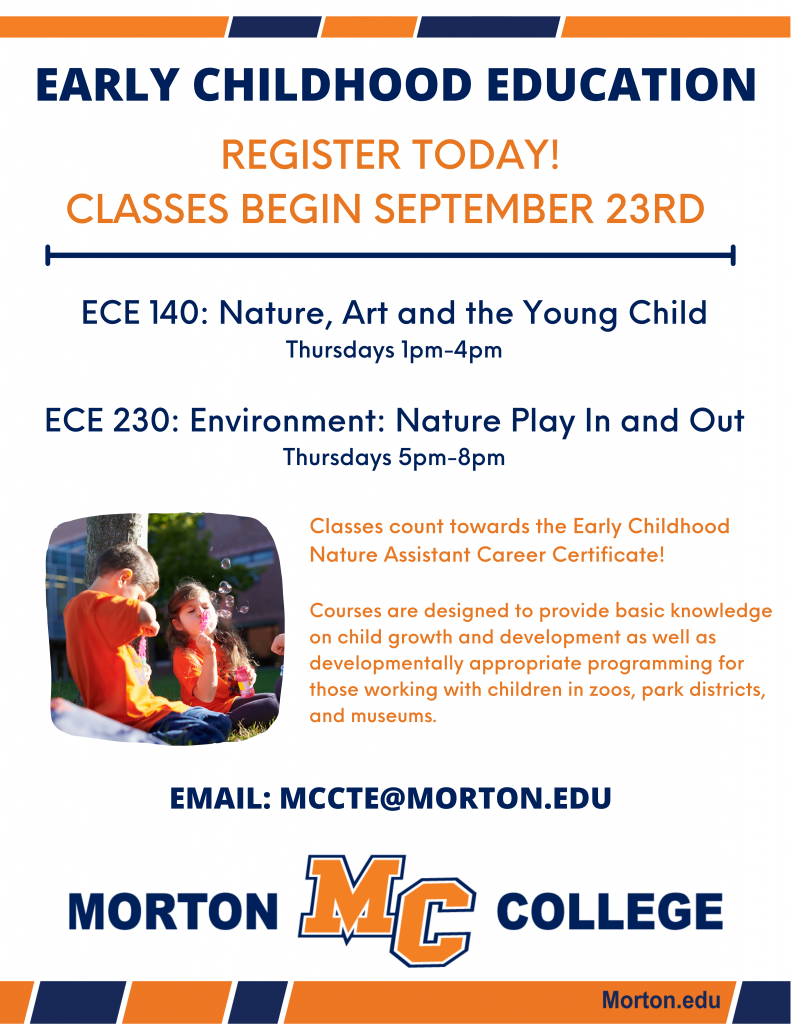
Credit: www.morton.edu
Challenges And Rewards Of Early Childhood Education Degree
Early Childhood Education Degree is a rewarding field that comes with its unique set of challenges and rewards. In this article, we will explore the hurdles and joys that individuals pursuing a degree in early childhood education may encounter.
Challenges Of Working With Young Children
- Managing disruptive behavior
- Adapting teaching methods for different learning styles
- Dealing with emotional outbursts
- Addressing diverse learning needs
Rewards Of Making A Difference In Children’s Lives
- Seeing the growth and development of each child
- Building strong relationships with children and families
- Impacting children’s future success
- Creating a safe and nurturing environment
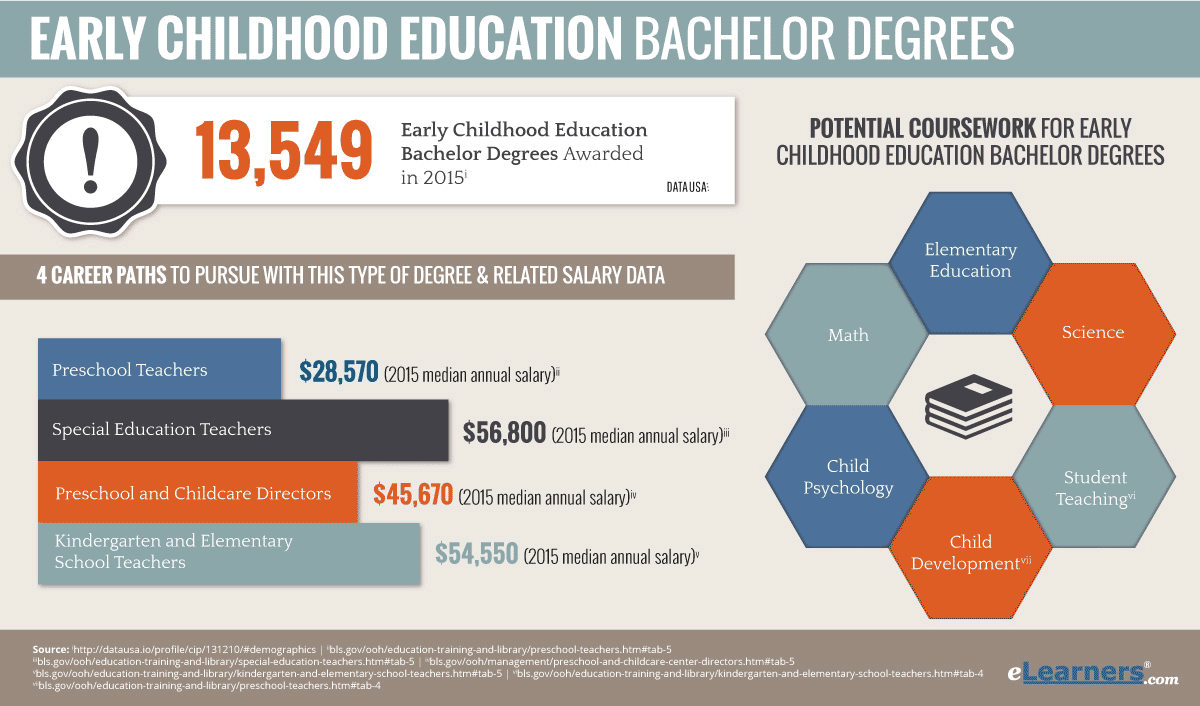
Credit: www.elearners.com
Frequently Asked Questions
Is An Early Childhood Education Degree Worth It?
Yes, an early childhood education degree is worth it for better job prospects and higher salaries in the field.
What Is The Highest Degree In Early Childhood Education?
The highest degree in early childhood education is a Doctorate in Early Childhood Education (EdD or PhD).
Which Course Is Best For Early Childhood Education?
For early childhood education, the best course is a Bachelor’s in Early Childhood Education.
What Is The Purpose Of Early Childhood Education?
Early childhood education fosters cognitive, social, and emotional development in young children, laying a strong foundation for future learning.
Conclusion
Early childhood education degree can open doors to a rewarding career. With a focus on child development and learning, this program equips you with essential skills. Pursuing this degree can lead to impactful roles in childcare, preschools, and early intervention programs.
Make a difference in young lives today.
Lorem Ipsum is simply dummy text of the printing and typesetting industry. Lorem Ipsum has been the industry’s standard dummy text ever since the 1500s, when an unknown printer took a galley of type and scrambled it to make a type specimen book.


